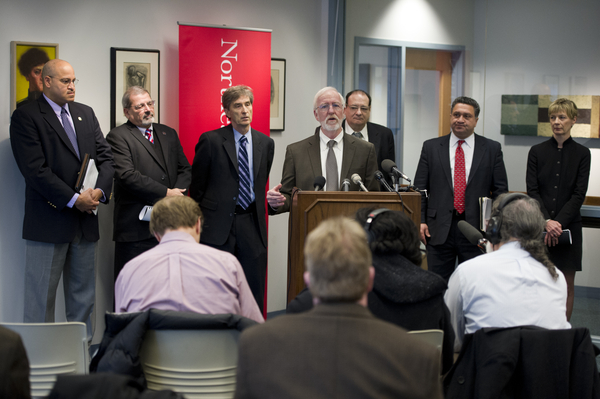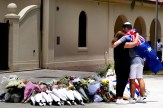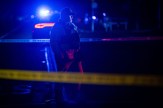State committee’s report calls for stricter gun laws

The state’s Committee to Reduce Firearm Violence, chaired by criminologist Jack McDevitt, associate dean of research for the College of Social Sciences & Humanities, on Monday afternoon released a report outlining strategies to bolster Massachusetts’ already strong gun laws.
In the wake of deadly school shootings in Newtown, Conn., Massachusetts House Speaker Robert DeLeo, SSH’72, last year charged the advisory committee with reviewing newly filed gun safety legislation and determining how to further reduce gun violence in the commonwealth. The committee’s final report, which included 44 recommendations, was released during a press conference at Northeastern University’s Snell Library attended by all but one of the eight committee members.
The recommendations include creating standards as determined by the Massachusetts Chiefs of Police Association that would prevent “unsuitable persons” from acquiring firearms, improving firearm safety and training courses in part by making the firing of weapons a requirement, and investing in community organizations to help reduce urban violence.
The committee also recommended eliminating Class B gun licenses, one of two gun licenses available in Massachusetts. Class B licenses allow people to carry an unconcealed though non-large capacity firearm. In its report, the committee said Massachusetts gun owners do not usually carry their weapons out in the open and therefore few Class B licenses are actually issued.
“Our goal as we started this process was to find some ways to make the system safer in Massachusetts,” McDevitt explained in his opening remarks. “We believe that legislation filed to deal with these recommendations will take us a long way to saving lives.”
The committee members included a range of professions, including educators, public safety personnel, and mental health experts. They expressed varying opinions on gun control, but McDevitt stressed the committee unanimously agreed on every single recommendation. Its recommendations are expected to inform gun safety legislation lawmakers will take up later this year.
“I want to thank the speaker for bringing all these people together,” McDevitt said. “The backgrounds, attitudes, and experiences of this group made our report so much richer and deeper. One of the things we as a committee found was we can have a thoughtful and respectful discussion around these issues.”
In addition to reviewing gun safety legislation, McDevitt said it was important the committee met with groups involved in the gun safety debate. Over a nine-month period, the committee heard testimony from 10 separate groups including police chiefs, gun owners, school superintendents, gun-control advocates, and mental health professionals.
Also present at the press event was Jim Wallace, executive director of the Gun Owners Action League, the official firearms association in Massachusetts. Wallace said he was disappointed with many of the recommendations and wished his organization had been included more in the committee’s process.
“In general I don’t think our members are going to be happy with this,” Wallace told members of the media.





